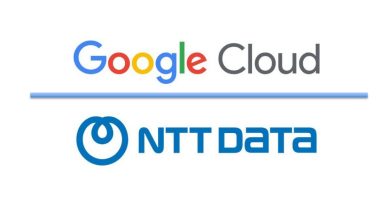
Written by: Khairul Haqeem, Journalist, AOPG.
Accounting is regarded as the heart and soul of any business. During this post-pandemic period, a thorough and effective accounting system can be critical in determining the life and death of a business. SMEs are among those who suffer the most from weak accounting system structures.
 Ferdy Nandes, Xero’s Head of Sales for Asia, believes that cloud accounting technology should be adopted by SMEs in order to level the playing field. Subscribing to cloud-based accounting software, such as Xero, and uploading business ledgers to the cloud is the essence of cloud accounting. It essentially means that consumers can view their financial data at any time, from any location as long as they are connected to the internet. Nandes went on to say that Xero delivers real-time accounting processes such as invoicing, payment, banking, payroll, inventory management, and more in a single application that customers can monitor, organise, and access. Additionally, the multi-user capability allows business owners to consult with their accountants and consultants before making any conscious financial decisions.
Ferdy Nandes, Xero’s Head of Sales for Asia, believes that cloud accounting technology should be adopted by SMEs in order to level the playing field. Subscribing to cloud-based accounting software, such as Xero, and uploading business ledgers to the cloud is the essence of cloud accounting. It essentially means that consumers can view their financial data at any time, from any location as long as they are connected to the internet. Nandes went on to say that Xero delivers real-time accounting processes such as invoicing, payment, banking, payroll, inventory management, and more in a single application that customers can monitor, organise, and access. Additionally, the multi-user capability allows business owners to consult with their accountants and consultants before making any conscious financial decisions.
Nandes noted that by implementing Xero, financial and administrative operations will be reduced, maximising efficiency among organisations and businesses. Importantly, Xero users can link their accounts directly to the banks of their choice, ensuring seamless transactions between the ledgers and the banks, instantly matching and reconciling bank account transactions with a single touch. Another useful feature is Xero’s integration with the Hubdoc data capture tool, which allows users to automatically obtain copies of original documents and important data without the need for manual data entry.

When asked about the general trend of organisations in the Asia-Pacific region adopting cloud accounting systems, Nandes stated that the inevitable reliance on digital tools and interconnected apps during the pandemic and post-pandemic is driving businesses to transition digitally in order to remain resilient and competitive in the market today. For the same reason, the accounting software industry (valued at USD $16.2 Billion in 2020) is expected to grow to USD $26.4 Billion by 2026. According to the One Step Study, a behavioural science research carried out by Xero, small businesses that readily adopt new technologies achieve 120 per cent higher revenues and 106 per cent higher productivity than those that do not.
One of Xero’s customers, GoGet, a community network for reliable and skilled part-time help, uses Xero scalability on a daily basis for large-scale transactions, providing optimal efficiency across the business. Livlola, on the other hand, reported that Xero cloud accounting saved them up to 80% of their accounting operations time, giving them more headspace and time to pursue their goal and growth. These claims are consistent with Nandes’ response on cloud adoption in real-world use cases: “SMEs are increasingly turning to digital tools and cloud solutions to automate and streamline business workflows such as claims processing, payroll, and invoicing so that they can focus on the important aspects of the business.”
Moving forward, cloud accounting adoption will grow, particularly among SMEs, and accountants’ roles will be increasingly consultative in nature. Nandes anticipated that in the near future, cloud accounting will rely more heavily on AI. As an example, as part of their ongoing AI roadmap, Xero just released bank reconciliation predictions.

Nandes also offered some words of wisdom for SME owners, asking them to evaluate their current accounting operations and assess how Xero’s cloud accounting services might best add value to their businesses. He went on to say that in order to make the shift to the digital journey, businesses and organisations should take the initiative to upskill their employees and partners in order to ensure that cloud accounting processes are fully utilised and streamlined across the board. Those that have already implemented cloud accounting should become acquainted with what it has to offer and strive to maximise its potential.
As we enter a new digital era, the harsh reality is that traditional business is bound to wither under the pressure of the paradigm shift. As we are approaching the realisation of the global village theory, virtually everything and everyone is progressively connected. SMEs and organisations should seize this opportunity to participate in the global marketplace. Implementing cloud accounting would be a modest step.




